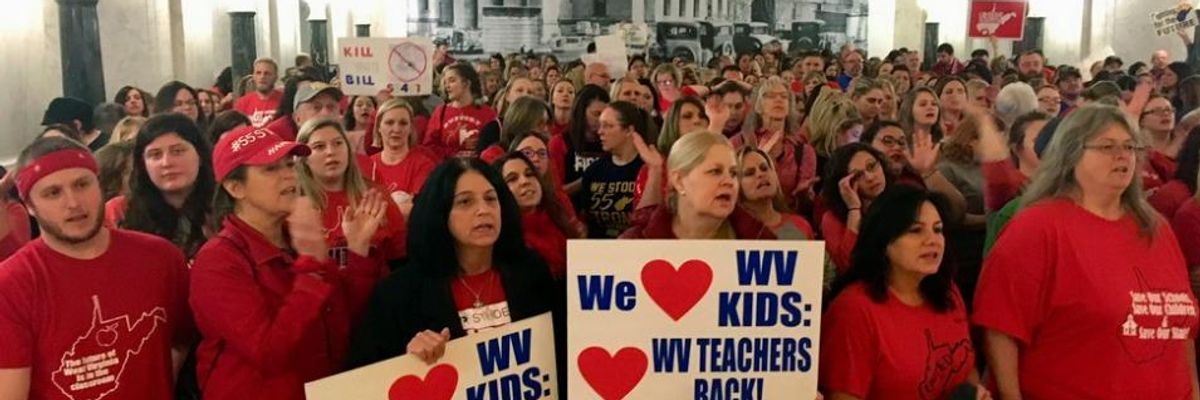This post has been updated.
West Virginia teachers celebrated Tuesday afternoon when they learned the strike they had staged had helped force the state House of Delegates to vote down an education reform bill that would have pulled funding away from public schools, redirecting it to private and charter schools and harming students across the state. The pro-privatization bill failed in a 53-45 vote.
The victory marks the second time in the past year that teachers in the state have used civil disobedience to force legislators to invest in public education.
Earlier:
A year after sparking a nationwide movement of educator uprisings, teachers from across West Virginia flooded the state capitol building in Charleston on Tuesday to fight a bill they warn would drain money away from public schools and seriously harm students.
Despite the inclusion of the very pay increases they fought last year to win, the teachers are calling on state lawmakers to reject an education reform bill (S.B. 451) because it also includes funding for charter schools and voucher programs which the state teachers union says would pull much-needed funding from public schools.
"By striking, we're basically saying, 'We refuse to take your pay raise under these conditions because we realize how bad privatization will be for our students and our schools,'" Jay O'Neal, a teacher in Charleston, told Jacobin.
Lawmakers in the state House of Delegates and Senate have debated various versions of the proposal in recent days, the most recent of which would allow seven charter schools to operate in West Virginia, which currently has none. The bill would also fund 1,000 vouchers for students with special needs, which critics say actually undermines those students as opposed to helping them.
Teachers argue legislators have rushed through the process without asking for their input and many believe the bill is actually punishment for the victory they won during last year's nine-day strike.
"This is not reform, this is retaliation," Brandon Wolford, a special education teacher and president of the Mingo County Education Association, told Jacobin. "Nothing in this proposal would make things better for students or staff. How does bringing in uncertified teachers [by legalizing charters] help our kids? How does taking public money and putting it into private hands help our schools? Unfortunately, the politicians are listening to the top one percent instead of listening to us."
Most school districts announced Monday thata they would go on strike, after the Senate sent the final version of the bill to the House. Teachers in the Capitol cheered Tuesday morning as it was announced that all 55 counties across the state had closed schools and that the Capitol building was at maximum capacity.
The teachers' strike in West Virginia late last winter kicked off the nationwide #RedForEd movement, which most recently has taken off in Denver and Los Angeles and is expected to come to Oakland, California this week as teachers across the country demand living wages and an end to corporate tax cuts that take away funding from their students.




